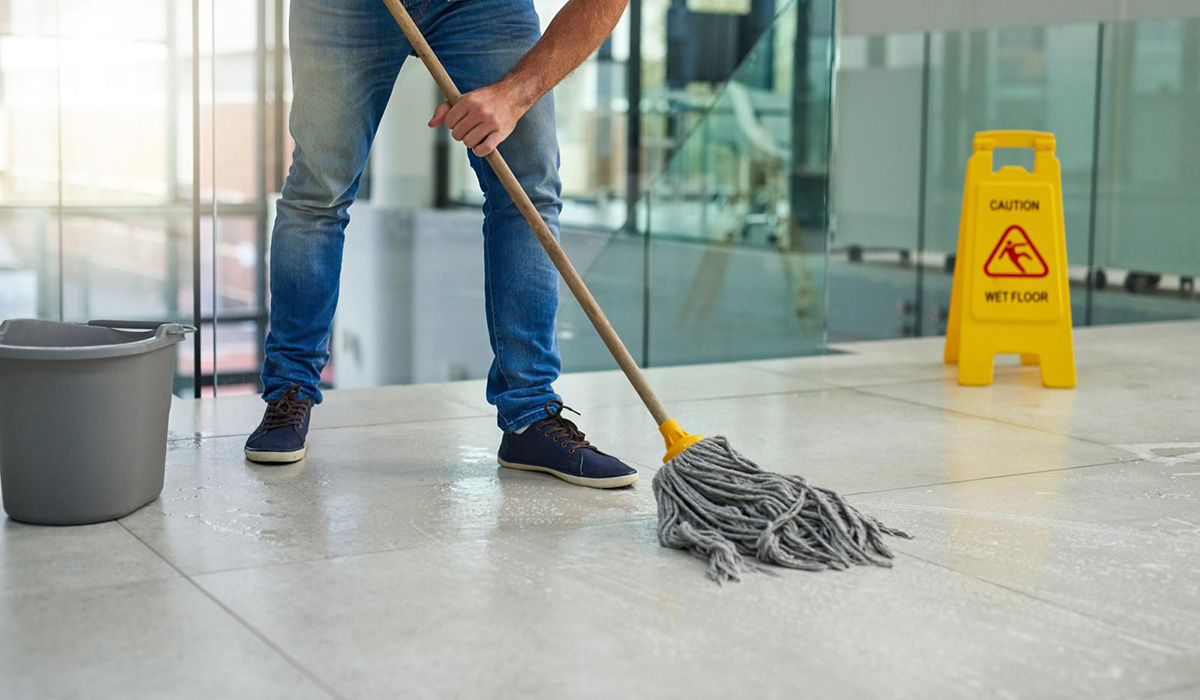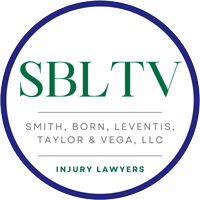
South Carolina Workers’ Compensation for Janitors & Cleaners
Learn if you qualify for workers’ comp benefits in Columbia and how to file a claim
Now more than ever, janitors, housekeepers and cleaners play an essential role in maintaining clean, safe and welcoming environments in our homes, offices, schools and public spaces in South Carolina.
These diligent workers, who often perform their duties behind the scenes and without much recognition, can face significant challenges when an injury occurs. Their daily work exposes them to a myriad of risks—from slip-and-fall accidents to exposure to hazardous chemicals and infectious diseases—that can lead to serious injuries and health issues.
Fortunately, in South Carolina, janitors, housekeepers and cleaners who suffer work-related injuries or illnesses may be entitled to workers’ compensation benefits. These benefits are designed to provide medical care and financial support, helping injured workers recover and return to their essential roles in our community.
This article sheds light on the common risks these workers face and the rights they have under South Carolina’s workers’ compensation system.
South Carolina janitorial statistics
There’s no doubt that janitors and cleaners are essential to South Carolina businesses. According to IBIS World, there are more than 21,000 janitorial cleaning businesses in our state, employing more than 38,000 workers, and this industry is only expected to grow. In fact, IBIS World estimates that South Carolina’s janitorial services industry will generate $1.29 million annually by 2028.
Common injuries and occupational hazards for janitors and cleaners
According to the U.S. Bureau of Labor Statistics (BLS), in 2020, janitors and cleaners (excluding maids and housekeepers) reported 21,000 cases of non-fatal injuries that required time off from work, a rate of 191.6 per 10,000 full-time workers. There were also 42 work-related fatalities that year. The most common injury was strains, strains and tears (6,130).
Common work hazards and injuries for janitors, housekeepers and cleaners
Below are some of the most common hazards and injuries experienced by cleaning staff:
- Slip, trip and fall hazards. Working around wet or slippery floors, cluttered spaces, and uneven surfaces often leads to slip-and-fall injuries like muscle sprains and strains, fractures, spinal cord injuries and traumatic brain injuries.
- Chemical exposure. Regular use of cleaning agents, solvents and disinfectants without proper personal protective equipment (PPE) can pose health risks, including chemical burns, skin irritation, respiratory problems and eye injuries. Additionally, working in poorly ventilated areas with strong cleaning products can lead to respiratory diseases like chronic obstructive pulmonary disease (COPD) and asthma.
- Heavy lifting and repetitive movements. Moving furniture, carrying, pushing and pulling heavy equipment, and repetitive scrubbing or mopping actions can strain the body, resulting in musculoskeletal disorders, back pain and repetitive stress injuries like carpal tunnel syndrome and tendonitis.
- Electrical hazards. The use of electrical cleaning equipment can expose workers to electrical shocks, especially in wet environments, resulting in injuries like electrical burns, internal organ damage, cardiac arrhythmias and death.
- Sharp objects and equipment. Handling broken glass or sharp tools and equipment can be hazardous and lead to injuries like cuts, lacerations and puncture wounds.
- Violence. Depending on the industry, janitors and cleaners are at a high risk of experiencing violence from the public or coworkers that can lead to fractures, traumatic brain damage and serious wounds that could lead to death.
- Infectious diseases. Handling waste materials, cleaning public spaces, and interacting with the public can expose janitors and cleaners to various pathogens, including viruses and bacteria, including but not limited to COVID-19, influenza, hepatitis, and other communicable diseases.
These hazards illustrate the often overlooked risks that janitors and cleaners face in their day-to-day work. Employers are responsible for providing adequate training, safety equipment, and risk mitigation strategies to help protect these workers as they perform their essential duties.
In the news:
NYPD cleaner killed by COVID-19 after cleaning police headquarters
Dennis Dickson had worked for 14 years as a janitor at the New York City Police Department when he contracted COVID-19 while on the job. Dickson and other custodians worked around-the-clock cleaning and sterilizing surfaces at One Police Plaza to reduce the spread of the potentially deadly novel coronavirus.
Workers who contract a communicable illness while performing their job duties are generally eligible to receive workers’ comp benefits. If the illness causes the worker’s death, the injured worker’s surviving dependents are eligible to receive workers’ comp death benefits in addition to compensation to cover the worker’s related medical bills and funeral expenses.
Two custodians found unconscious after exposure to toxic chemicals
Two California workers’ families reported them missing when the Dublin Unified School District custodians did not return home from work. Police searched for the workers at Fallon Middle School, where the 2 were employed. After investigating a mysterious chemical odor in the library, police discovered the workers unconscious. One had died; however, police were able to revive the other worker.
The deceased workers’ dependent family members are likely eligible to receive workers’ comp death benefits and payment for funeral expenses. The surviving worker may receive compensation for current and future medical expenses and income supplementation.
Eligibility for South Carolina workers’ comp benefits
South Carolina’s Workers’ Compensation Act protects workers who are injured in a work-related accident. As a no-fault system, workers’ comp is available to injured workers without regard to whether they were at fault in the work accident that caused the injury.
To get these benefits, an eligible employee only needs to be able to prove that their injury or illness was directly caused by their job. One-time accidents, as well as occupational diseases and illnesses, like carpal tunnel syndrome, hearing loss, and arthritis, that develop over time are covered.
It’s important to note that workers’ comp is an exclusive remedy. This means that if an employee accepts a workers’ comp settlement, the worker will not be permitted to file a civil lawsuit originating from the same accident against the employer.
Most South Carolina employers with 4 or more employees are required to have workers’ compensation insurance for their employees. However, state law recognizes the following exceptions:
- Independent contractors
- Casual employees
- Agricultural employees
- Licensed real estate agents who work for a broker
- Employers who reported less than $3,000 in payroll the previous year
- Workers who sell agricultural products
- Federal employees of the state
If you’re unsure if you qualify for workers’ comp benefits after an injury, reach out to an experienced South Carolina work injury attorney who can explain your rights and help you pursue the appropriate compensation.
Dealing with Workers’ Compensation Claim Denials
A denied claim doesn’t necessarily mean that you’re out of options. Find out how to appeal a denied workers’ comp claim to get the compensation you deserve.
Types of workers’ compensation benefits
The workers’ comp program was designed to quickly cover injured workers’ accident-related expenses to help them recover and return to their jobs. Eligible injured workers who are approved for workers’ compensation benefits may receive the following:
- Income supplementation to cover two-thirds of a worker’s average weekly wage if they’re unable to work
- Payment for medical expenses, including surgeries, medications, hospital stays, doctor’s appointments, rehabilitation and supplies
- Death benefits, including funeral expenses and lost income, paid to the worker’s surviving dependents in fatal work-related accident cases
How to file a South Carolina workers’ compensation claim
To begin the workers’ comp claims process, the injured worker needs to take the following steps:
- Seek medical attention. This is a critical step, as it provides a worker with a diagnosis that ideally ties their injury or illness to their job, which is necessary for a successful claim.
- Report the work-related accident that caused the injury. South Carolina law requires workers to report a work-related injury to their employer within 90 days of discovering the injury. The notice requirement may be waived if the worker is mentally or physically incapable of reporting the injury.
- Employer files a claim. It’s an employer’s responsibility to file a workers’ comp claim with their insurer after they receive notification of the injury from a worker. If the employer refuses to do so or if the claim is denied, workers should reach out to a workers’ compensation attorney for help.
Contact an experienced Columbia work injury attorney for help with your workers’ comp claim
If you’re a janitor, custodian, housekeeper or cleaner who’s been injured at work in South Carolina, contact the experienced work injury attorneys at Smith, Born, Leventis, Taylor & Vega for help with your claim.
We believe that every Columbia worker has a right to a safe and healthy work environment. When the worst happens and you experience a work-related injury or illness, you shouldn’t have to worry about your medical bills and lost income while you recover. Let us handle the paperwork and negotiations with your employer’s insurance company so you can focus on healing.
Contact our office today for a free consultation.

